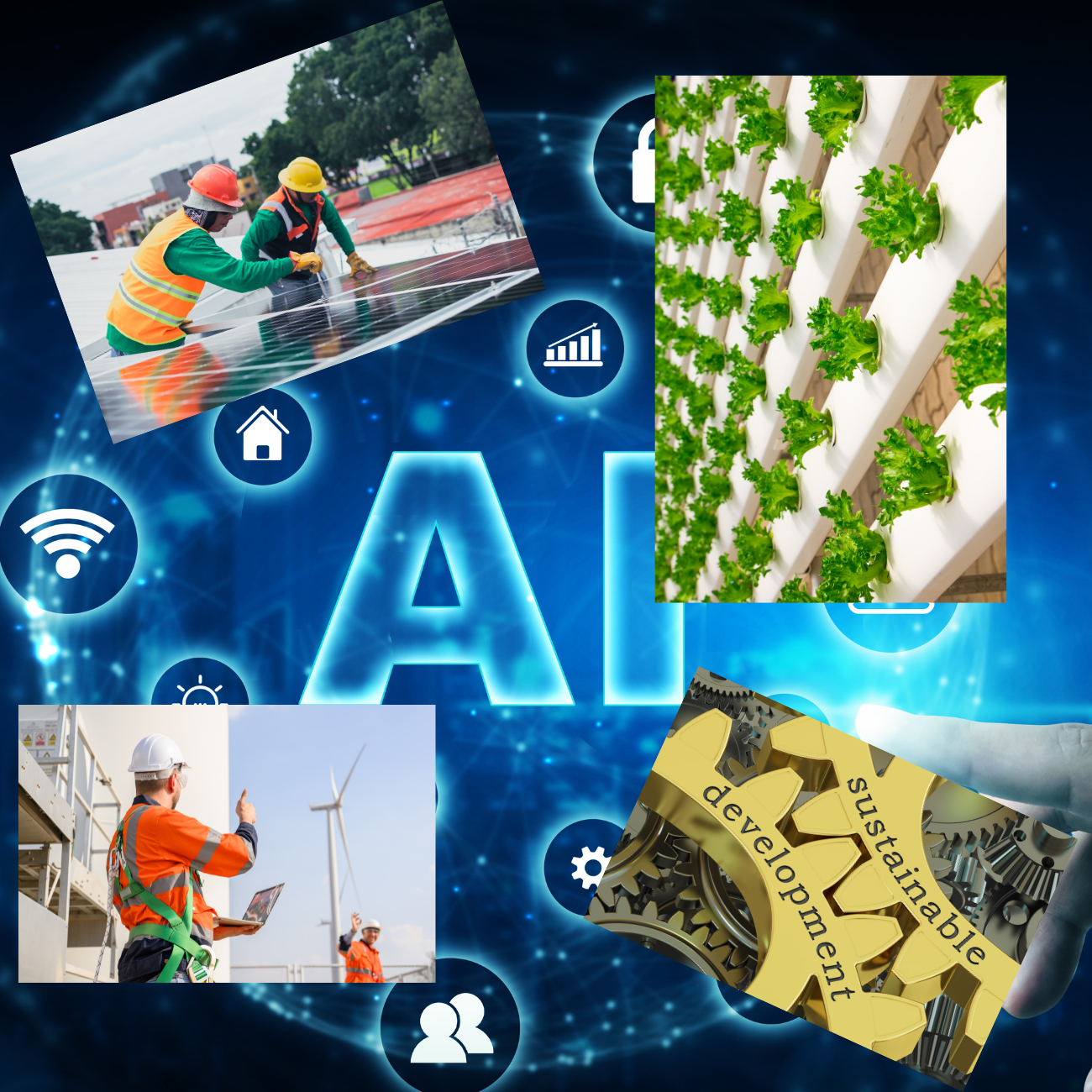In an era where climate change and environmental degradation are pressing issues, the concept of sustainable technology has emerged as a beacon of hope. Sustainable technology refers to innovations designed to minimize environmental impact while promoting sustainability across various sectors. As we delve into the fascinating world of sustainable technology innovations, we will explore how these advancements are crucial in addressing our planet’s pressing challenges.
Renewable Energy Technologies.
One of the most significant areas of sustainable technology is renewable energy. Innovations in this field are transforming how we harness and utilize energy.Solar power has undergone remarkable advancements, particularly with the development of photovoltaic cells. Traditional solar panels are now being complemented by perovskite solar cells, which promise higher efficiency and lower production costs. Furthermore, the focus on solar panel recycling is gaining momentum, leading to sustainable practices that reduce waste and the environmental footprint of solar energy systems.Wind energy has also seen exciting developments, particularly with the rise of offshore wind farms. These installations take advantage of stronger and more consistent winds found offshore, making them more efficient than traditional onshore turbines. Innovations such as vertical axis wind turbines are being explored to capture energy more effectively in urban environments, providing sustainable energy solutions where space is limited.In addition, hydropower and tidal energy technologies are making strides. Sustainable practices in hydropower, including small scale projects that minimize ecological disruption, are being prioritized. Tidal energy, harnessing the natural ebb and flow of ocean tides, presents a promising alternative that is still in its developmental stages but holds great potential for the future.
Sustainable Transportation Solutions.
Transportation is another key area where sustainable technology is making a significant impact. The shift towards electric vehicles (EVs) is one of the most visible trends. As battery technology advances particularly with the development of solid state batteries, the range and efficiency of EVs continue to improve. This technological progress is accompanied by an expanding infrastructure for charging stations, making EV adoption more convenient for consumers.Public transport systems are also innovating. Smart public transport solutions are being implemented to reduce emissions and enhance the efficiency of urban mobility. Electric buses and trains are becoming more commonplace, providing environmentally friendly alternatives to traditional modes of transportation.Moreover, the exploration of alternative fuels such as biofuels and hydrogen fuel cells is gaining traction. These innovations offer cleaner energy sources that can significantly reduce our reliance on fossil fuels.
Sustainable Agriculture Technologies.
The agricultural sector is embracing sustainable technology innovations that promote efficient resource use and environmental stewardship. Precision farming is at the forefront of this movement, utilizing IoT devices and drones to optimize farming practices. By gathering and analyzing data, farmers can make informed decisions that enhance crop yields while minimizing waste and resource consumption.Vertical farming is another exciting development, allowing for the cultivation of crops in urban areas using innovative methods like hydroponics. This approach not only maximizes space but also reduces the carbon footprint associated with transporting food over long distances. Successful vertical farming initiatives are already being implemented in cities worldwide, showcasing the potential of this sustainable practice.In addition, agroecology promotes sustainable farming practices that enhance biodiversity and soil health. By integrating ecological principles into farming, agroecology helps create resilient agricultural systems that can withstand climate change and other environmental pressures.
Waste Management Innovations.
As the world grapples with increasing waste production, sustainable waste management practices are becoming essential. The concept of a circular economy is gaining popularity, focusing on minimizing waste and maximizing resource utilization. Companies are increasingly adopting circular practices, such as designing products for longevity and recyclability, to reduce their environmental impact.Waste to energy technologies are also making significant strides. These innovations involve converting waste materials into energy through various processes, significantly reducing landfill use while generating usable energy. Examples of successful waste to energy plants illustrate how these technologies can contribute to a more sustainable future.Additionally, recycling innovations are transforming how we approach waste management. New methods, such as chemical recycling and upcycling, are emerging to address the limitations of traditional recycling processes and promote resource recovery.

Smart and Sustainable Cities.
The development of smart cities is a crucial component of sustainable technology innovations. Smart grids, for instance, enhance energy efficiency by managing energy distribution more effectively. These grids allow for real time monitoring and demand management, leading to reduced energy waste.In the realm of construction, green building technologies are gaining prominence. Sustainable materials and energy efficient designs are becoming standard in new developments, contributing to reduced environmental impact. Notable examples of green buildings, which often achieve certifications like LEED, showcase the potential for sustainability in urban environments.Another essential aspect of smart and sustainable cities is the integration of urban green spaces. These areas not only provide recreational opportunities but also improve air quality, promote biodiversity, and contribute to the overall well being of urban residents.
Water Conservation Technologies.
Water scarcity is becoming an increasingly critical challenge, and sustainable technology is stepping up to address this issue. Desalination innovations are making strides in providing fresh water from seawater, particularly in arid regions where freshwater resources are limited. Advances in desalination technology aim to make this process more efficient and cost effective.Water recycling and reuse practices are also gaining traction, particularly in agriculture and urban settings. By treating and repurposing wastewater, communities can conserve freshwater resources and reduce their environmental impact.Moreover, smart irrigation systems are revolutionizing how we manage water in agriculture. Utilizing IoT technology, these systems can monitor soil moisture levels and weather conditions, ensuring that crops receive the optimal amount of water while minimizing waste.
Conclusion.
Sustainable technology innovations play a vital role in addressing the challenges facing our planet today. From renewable energy advancements to smart transportation solutions, these innovations are paving the way for a more sustainable future. As individuals, we can support and engage with sustainable practices in our daily lives, fostering a culture of sustainability that benefits both our environment and future generations.
FAQs:
- What is sustainable technology? Sustainable technology refers to innovations designed to reduce environmental impact and promote sustainability in energy, transportation, agriculture, and other sectors.
- How do renewable energy technologies contribute to sustainability? Renewable energy technologies harness natural resources to produce energy without depleting them, reducing reliance on fossil fuels and lowering greenhouse gas emissions.
- What role does precision farming play in sustainable agriculture? Precision farming uses technology to optimize farming practices, leading to more efficient resource use, reduced waste, and improved crop yields.
- What is the circular economy? The circular economy is an economic model focused on minimizing waste and maximizing the use of resources by reusing, recycling, and refurbishing materials.
- How can individuals support sustainable technology innovations? Individuals can support sustainable technology by adopting eco friendly practices, using renewable energy sources, and advocating for policies that promote sustainability.
